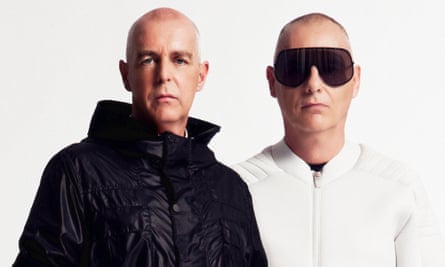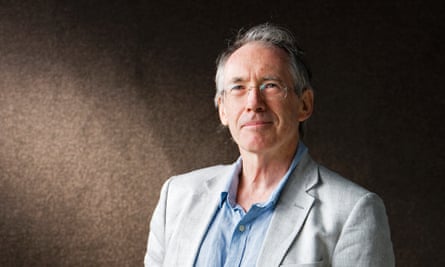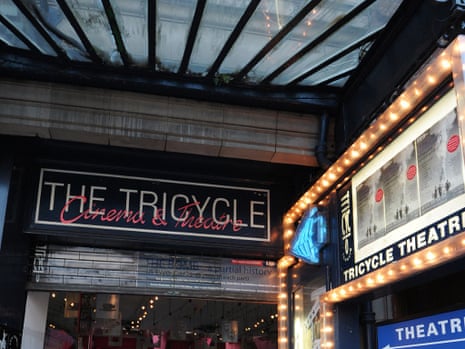Three weeks ago, UK Jewish Film began receiving anxious emails and phone calls from the Tricycle Theatre, the north London home of the UK Jewish film festival for the past eight years. It’s understood that the theatre board was making demands it had not made before. The board asked to be allowed to view in advance all of the films that were made with Israeli backing in order to approve their content. When the UKJFF dismissed this as censorship, the Tricycle conceded the point. But it refused to back down on another demand: that the festival should hand back the small percentage of its funding that came from the Israeli embassy. The UKJFF could not understand why this longstanding financial arrangement had only now become a dealbreaker and rejected the Tricycle’s offer to make up the financial shortfall because it was a matter of principle. After two weeks of negotiations, this impasse remained and the UKJFF withdrew from the Tricycle, formally announcing its decision on Tuesday.
There is no geopolitical issue more bitterly divisive than Israel and Palestine at the best of times, let alone during the current conflict in Gaza, but this dispute has particularly serious implications for the relationship between artists, Israel and the British Jewish community. Stephen Pollard, editor of the Jewish Chronicle, called the Tricycle “officially antisemitic” while Nicholas Hytner, director of the National Theatre, backed the Tricycle’s decision and said the UKJFF had “unwisely politicised” the festival. The Tricycle did not respond to the Guardian’s request for an interview and the UKJFF could not field an official spokesperson. However, Simon Johnson, chief executive of the Jewish Leadership Council, who has close ties to the festival, was willing to discuss the situation.
“I think it’s an opportunistic attempt to bring an international political dispute into UK multi-faith culture,” says Johnson. “This is a Jewish film festival. It’s not an Israeli film festival. This is a major contributor to understanding of the entire conflict. It’s all about building bridges and showing films which address all sides of the issue. To suddenly impose a condition just a few short days after the start of the Gaza situation strikes us in the Jewish community as a discriminatory boycott by the Tricycle Theatre.”
The issue of a cultural boycott of Israel has been gathering momentum since a broad coalition of Palestinian groups established the Boycott, Divestment and Sanctions movement in 2005. The BDS movement advocates a wide range of boycotts, including corporations, sports teams and academic institutions, until Israel meets three demands: “Ending its occupation and colonisation of all Arab lands occupied in June 1967 and dismantling the Wall; recognising the fundamental rights of the Arab-Palestinian citizens of Israel to full equality; and respecting, protecting and promoting the rights of Palestinian refugees to return to their homes and properties as stipulated in UN Resolution 194.”
According to Jewish-American activist and journalist Sherry Wolf, a member of the BDS-related US campaign Adalah-NY, “this last month has seen an escalation like nothing we have seen in the past nine years of BDS’s existence”. While the current Israeli Defence Forces (IDF) operation has been criticised by regular campaigners such as Brian Eno, Peter Gabriel, Ken Loach, Hanif Kureishi and Maxine Peake, less political stars have spoken out. Rihanna and One Direction’s Zayn Malik both tweeted the hashtag #freepalestine, albeit provoking a backlash that made them wish they hadn’t. Sinéad O’Connor recently explained pulling out of a concert in Caesarea in pungent terms: “There’s not a sane person on Earth who in any way sanctions what the fuck the Israeli authorities are doing.”

Of all the BDS movement’s components, the cultural boycott is the most thorny because art prides itself on its power to build bridges. Towards the end of his long life as musician and campaigner, Pete Seeger resisted the idea of shutting these bridges down: “I understand why someone would want to boycott a place financially, but I don’t understand why you would boycott dialogue.” While resisting demands to cancel a show in Israel last year, R&B singer Alicia Keys fell back on sentimental rhetoric: “Music is a universal language that is meant to unify audiences in peace and love.”
For Wolf, however, Israel-Palestine has gone beyond civil dialogue and the unifying power of music. “Art is intrinsically political and always has been. Artistic figures have an outsize profile in the world. Saying that Israel is a pariah state that must be isolated like South Africa was isolated is a way of saying we will not allow our art to be used to pretend that this is a dialogue between two peoples. It’s occupation, it’s racism, it’s ethnic cleansing. We will not normalise the occupation and the apartheid of Israel.”
Comparisons with South Africa are imperfect. First, that boycott was codified by a UN resolution. Second, it was criticised at the time for penalising South African performers who opposed apartheid. Third, white South Africans were not a discrete ethnic or religious group. Fourthly, many people, including critics of Israel, dispute the accuracy of the “apartheid” tag. Defending the Pet Shop Boys’ decision to play in Israel last year, Neil Tennant wrote: “Israel has (in my opinion) some crude and cruel policies based on defence; it also has universal suffrage and equality of rights for all its citizens both Jewish and Arab. In apartheid-era South Africa, artists could only play to segregated audiences; in Israel anyone who buys a ticket can attend a concert.”
Nonetheless, the comparison is fundamental to the premise of BDS. For individual artists, this means that even people who would rather avoid broadcasting their views are forced to publicly take sides or fudge their positions. Pixies were added to the list of BDS supporters after cancelling a Tel Aviv concert in 2010 but that turned out to be for security reasons and they finally played in the city two months ago. Elvis Costello cancelled two 2010 dates with a contorted statement that seemed neither to endorse nor condemn the boycott.
Some artists attempt to square the circle by using a platform in Israel to tackle the issues head-on. Defending his decision to accept the Jerusalem Prize for literature in 2011, Ian McEwan pointed out, “If I only went to countries that I approve of, I probably would never get out of bed.” In his acceptance speech, he spoke at length about Israeli policy in Palestine, calling it “a great and self-evident injustice”. The novelist Linda Grant sums up her position thus: “I’m happy to press war crimes charges against politicians and generals, but not punish ballerinas and actors because you can’t get at the powerful.”

The unease many artists feel about a boycott stems from the fact that of all the countries committing reprehensible acts, the only one being targetted on this scale is the world’s only Jewish nation, and this carries uncomfortable echoes of the Nazi boycott of Jewish businesses that preceded the Holocaust. “It’s completely the wrong message,” says Simon Johnson. “Israel is one of the only countries in that region where films that are critical of the government are freely shown with no intimidation to artists and film-makers. A cultural boycott does nothing to promote peace, harmony and goodwill. What it does is promote division and conflict between people and it is utterly discriminatory.”
While he stops short of calling the Tricycle’s decision antisemitic, he adds that “people in the Jewish community would be entitled to question the motives of those who took it”.
There is no doubt that there are antisemites among the boycott movement who target Jewish individuals. Human rights group PEN International recently condemned a list of “Israeli products to be boycotted”, circulated on social media, that included the novels of Turkish-Jewish novelist Mario Levi. But the list was not endorsed by the BDS movement. Just as critics of Israel tend to highlight the pronouncements of its most hardline politicians, its defenders focus on outrageous antisemites; each side wants to present the other in the worst possible light.
“There has never been an attack on Jews qua Jews,” says Wolf. “I live in Brooklyn. Twenty-five per cent of my neighbourhood is Jewish. A rising number of us are unequivocally pro-Palestine and horrified that we are identified in any shape or form with this massacre in Gaza. We must be clear: the cultural boycott is not a boycott of individuals. We purposefully wanted to avoid a McCarthyite blacklist. The propaganda machine of the Israeli state is considerable. Sending dance troupes [around the world] and then calling us out is at best cynicism and at worst rank hypocrisy.”
Wolf and Johnson are poles apart. Individuals can criticise Israel while opposing a boycott on principle but the two cannot be separated: the logic of the boycott stems from your opinion of the conflict. If you believe that Israel is as uniquely outrageous as South Africa once was, then it is clearly justified. If you do not, it isn’t. Despite idealistic beliefs that art transcends everything, the boycott is as inflammatory as any other element of the conflict.
The UKJFF is now going to spread its programme across several venues. People can decide for themselves whether it would have been better if the films had never been shown.




Comments (…)
Sign in or create your Guardian account to join the discussion